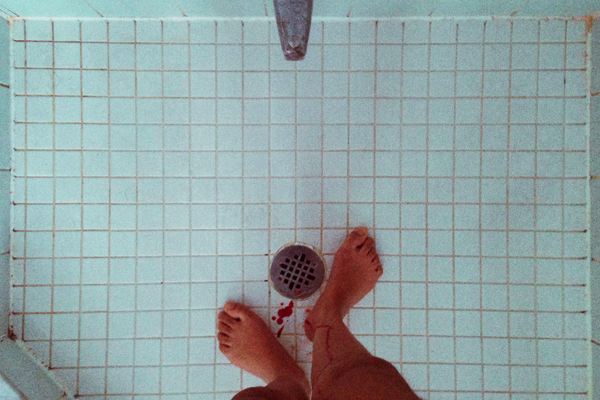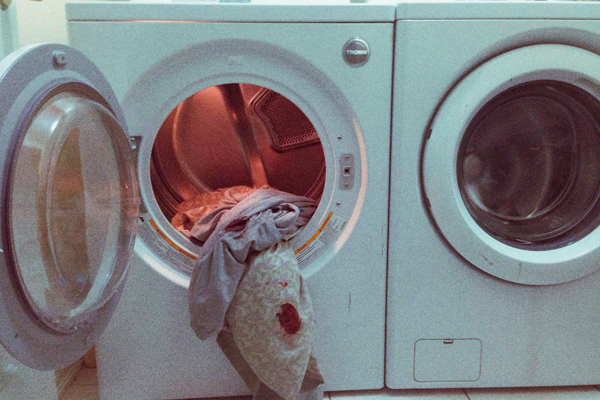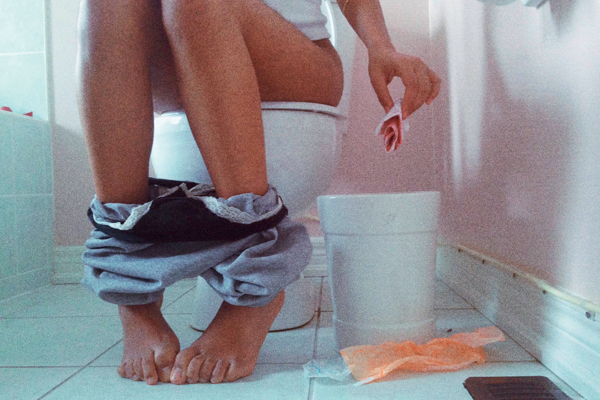Advice On Art, Poetry And Protest With Rupi Kaur
"I want everyone, but especially women, to know they have power."

Our generation has mastered the ability to curate our identity. It’s one of the most glorious privileges that the internet provides. Whatever your social media presence means to you, it undoubtedly tells a particular story about yourself. And there’s no person better at encompassing the joys of artful self-expression in our modern age than 24-year-old poet, illustrator and author Rupi Kaur.
Kaur has navigated the advantages and shortcomings of the internet with expert grace. Her unrelentingly honest depictions of womanhood, abuse, family and love reach over 1.2 million followers daily. Her debut book of poetry milk & honey, originally self-published before being picked up Andrew McNeels Publishing, has now become a New York Times bestseller.
Yet she’s run into difficulty too. In 2015, she shared a series of photographs on Instagram of a young woman strewn over her bed, menstrual blood trailing from her trackpants to her sheets. Believing it to violate their community guidelines, the platform took down the photo. Twice. Kaur protested the baseless decision by drawing attention to the glaring contradiction of it — that Instagram can be a place for women to be objectified, but not humanised.
“I will not apologise for not feeding the ego and pride of a misogynist society that will have my body in underwear but not be okay with a small leak,” she wrote. Kaur attracted enormous worldwide support. Instagram relented.
Rupi described the victory as not just hers to celebrate, and encouraged her readers to take pride in too. “You made a giant see that it is only a giant ’cause you are part of its existence,” she wrote. Kaur’s work sits as an example of empowerment and activism, a shining light for young artists and a refreshing signal that new poetry is for everyone.
We sat down with Rupi ahead of her appearance at the Sydney Writers’ Festival to speak about pulling emotion out of the reader, viral poetry and writing your best work.
Junkee: How did this all start for you? Your poems are really bare and truthful. Have you always wanted to share these kinds of personal stories in such a public way?
Rupi Kaur: I’ve been writing for a really long time. I was in middle school when I started to write poetry and started to perform. For seven years I did classical Indian music performances around the city and then that somehow transitioned me into being an engaged spoken word performer as well. About eight years after that I actually began to take it a little bit more seriously and started to share my work.
I love that your poems feel so universal and accessible to everyone, not just snobby art folks. Was this intentional?
Yeah, I wanted to create a positive reader experience. This is something I learned in school. My major ended with the art of persuasion — how to pull emotion out of people — and so I think that’s been a big part of my poetry. I always ask myself, “Okay what does a reader experience? Is a reader able to understand the emotion of the speech? Am I using the right language?” I think by asking myself those questions I was able to land at a style that is highly accessible.
Do you think that this highly accessible style is what makes your poetry and illustrations fit so well with a medium like Instagram?
I think so. The language is accessible, it’s direct and I think that plays a part, but more so what’s important than the word count is the emotions I’m pulling out of the reader. You wouldn’t expect to feel those ways on Instagram.
Poetry is such a personal thing, how do you feel about something that you’ve poured your heart and soul into going viral? It just goes out into the internet and you not knowing where it reaches.
I almost don’t even know if I think about that. I started off very anonymously; no one was reading my stuff and I was sort of aloof in sharing my work. My readership grew very slowly over years. I wasn’t thinking about what people think. I think if I thought about that then I wouldn’t be able to share and write what I write about. I very much protected myself from those thoughts.
Do you think that more poets should be embracing the internet?
I think so. I think for writers in general, it’s a new age. As much as we might not like it, this is the age and times we live in. And I know social media causes anxiety for people so it’s not something I suggest to everybody. But if you’re looking to share your work and you’re publishing something you want to get into, then I don’t think it’s a bad idea. Especially because there is so much competition now, right? I think it is a good idea, and that’s what my creative writing professors told me. Publishers will like to publish authors who come with audiences. So, why not?
Would you have any sort of advice for people looking to build their own audiences, seeing as you’ve done it so successfully yourself?
Write the best work that you can. Don’t rush in to sharing your work online. You know, it’s not just about sharing your work; it’s about sharing your best work. Ask yourself how does your work stand out as compared to other people, compared to what’s out there? These are questions I learnt in school and these are the questions that I asked myself constantly.
“I want everyone, but especially women, to know they have power.”
I wanted to talk about your period photo series. I, and I’m sure a lot of other young women, found it incredibly inspiring to see periods not only normalised in your work, but celebrated. Is this the reaction you want young women to take away from your work in general? Is that something that’s always at the forefront of your mind?
For sure. I want everyone, but especially women, to know they have power. The power they need, and are looking for, is already within them. It’s about just grabbing it and embracing it. Everything you need is already in you. And I hope they feel that with my work.
We always acknowledge predecessors when we speak about influences for our art, but are there any contemporary poets or artists that really encourage you to do good work every day?
Sharon Olds is a contemporary poet that I love. When I look at her work, it inspires me to create more honest work because I think that’s something that she’s done a beautiful job with.
What are you most looking forward to about the Sydney Writers Festival?
Meeting the readers! They’re different all around the world and it’s my first time in Sydney, so I’m excited to see what the readership in this city looks like.
–
Rupi Kaur is speaking at four events at Sydney Writers Festival: The Best of the Festival: Poetry and Performance; Tough Love: Writing Complex Relationships; Sex, Blood and Death; Viral and Verse. The festival runs from May 22-28.
–
Josephine Parsons is a writer from western Sydney who likes to blatantly lie on her bios. She played the youngest sister in ’80s sitcom Family Ties and looks fantastic running with a backpack on.



